For many cryptocurrency enthusiasts, the allure of buying BTC no KYC (Know Your Customer) lies in maximizing personal privacy and avoiding the extensive sharing of sensitive personal data with centralized entities. In an increasingly digitized world, this pursuit of anonymity is particularly prominent. While most heavily regulated trading platforms mandate identity verification (KYC) to comply with global Anti-Money Laundering (AML) and Counter-Terrorism Financing (CTF) regulations, alternatives exist for those who prioritize the decentralized ethos of cryptocurrency, or who operate under specific constraints (e.g., in restricted regulatory regions).
This comprehensive guide will delve into the various available options for acquiring Bitcoin without traditional KYC procedures. We will meticulously dissect the specific mechanisms of these methods, the associated complex risks (including potential legal exposure, security vulnerabilities, and fraud pitfalls), and provide a series of crucial safety precautions and best practices, all designed to help you safeguard your assets while pursuing privacy.
Why Consider Buying BTC No KYC? — Unpacking the Core Motivations
Understanding why users seek to buy BTC no KYC helps us more fully grasp the underlying drivers of this phenomenon:
-
Privacy Protection: In an era where "data is the new oil," the widespread collection, storage, and analysis of personal information have become commonplace. For many, one of Bitcoin's initial appeals was its pseudonymous nature and promise of financial sovereignty. KYC requirements, no matter how reasonably conceived, can, to some extent, conflict with this core value. Users often wish to prevent their identity from being permanently linked to their on-chain transaction history, thereby protecting their financial freedom and personal security.
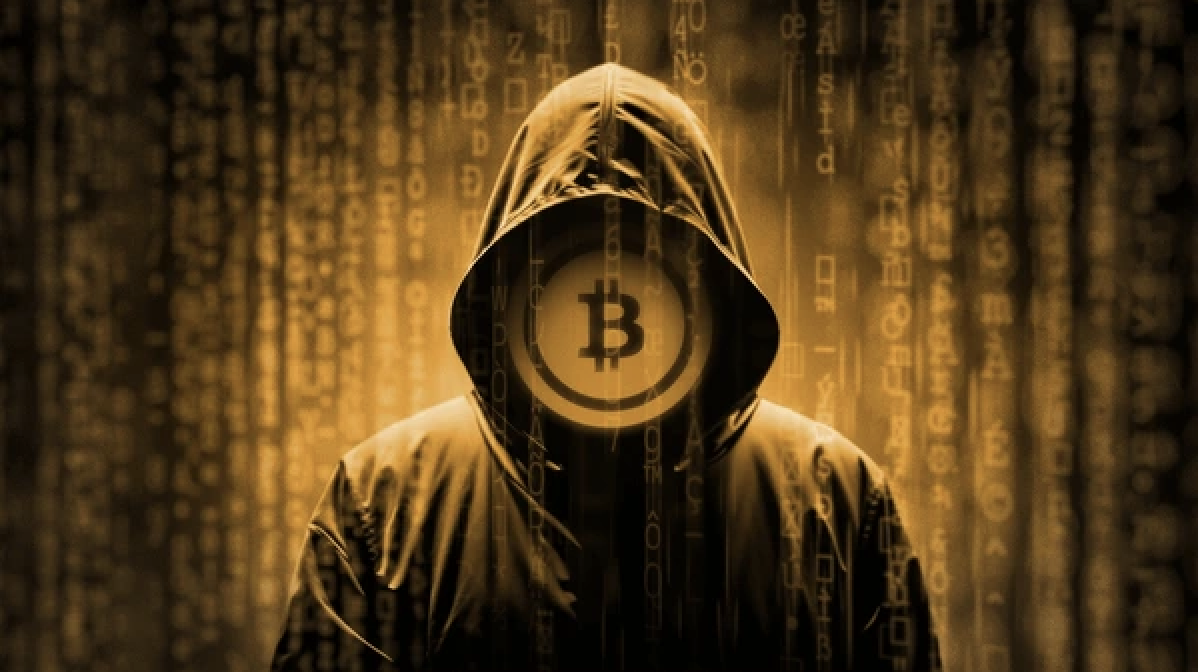
-
Censorship Resistance & Financial Inclusion: In certain geopolitical or economically restricted regions, traditional financial systems might impose strict capital controls on citizens or even lead to financial exclusion. For these groups, buying BTC no KYC might represent the only avenue for participating in the global economy and protecting their assets from inflation or political instability. It serves as a tool for financial inclusion and circumvention of undue censorship.
-
Mitigating Centralization Risks: Uploading personal identification details to centralized exchanges means this data is stored on servers controlled by a single entity. These databases can become targets for hackers, leading to sensitive information breaches. Furthermore, centralized entities may face risks such as asset freezes, platform shutdowns, or legal disputes due to government pressure, mismanagement, or legal issues, thereby impacting user fund security.
-
Ideological Drive: A segment of early Bitcoin proponents and cypherpunks are deeply influenced by ideologies of decentralization, censorship resistance, and individual liberty. For them, insisting on "no KYC" is not merely a practical consideration but also a practice and preservation of core principles.
-
Misconceptions About Blockchain's "Pseudonymity": Some users might mistakenly believe that blockchain transactions are entirely anonymous. In reality, Bitcoin transactions are publicly transparent, with all records permanently stored on the blockchain. Once an address is linked to an individual's identity through a KYC platform or other means, their historical transactions can be traced and analyzed. Therefore, opting for "no KYC" is an attempt to maintain this "pseudonymous" state as much as possible.
However, all these motivations must be weighed against the significant risks associated with buying BTC no KYC. The pursuit of absolute privacy can sometimes come at the cost of security, convenience, and legal compliance.
Pathways to Buy BTC No KYC — An In-Depth Analysis
While large, heavily regulated, and mainstream cryptocurrency exchanges (such as Coinbase, Binance, Kraken, Gemini, etc.) almost universally mandate comprehensive KYC verification to comply with global Anti-Money Laundering (AML) and Counter-Terrorism Financing (CTF) regulations, several avenues still allow you to acquire Bitcoin without traditional identity verification:
-
Peer-to-Peer (P2P) Trading Platforms — Directly Connecting Buyers and Sellers
P2P trading platforms are designed to connect individual Bitcoin buyers and sellers directly, bypassing traditional centralized exchanges. The platform often acts as a secure escrow service to ensure the fairness of the trade, but its KYC requirements can vary depending on platform policy, transaction volume, and jurisdiction. Certain privacy-focused P2P platforms are primary choices for those looking to buy BTC no KYC.
-
How it works:
-
Post/Accept Order: Buyers or sellers post their intention to buy/sell (including price, quantity, payment method) on the platform.
-
Match & Communicate: The platform matches suitable trading parties, who then communicate via an inbuilt chat system.
-
Fund Escrow: The seller sends Bitcoin to the platform's escrow account.
-
Payment Confirmation: The buyer pays fiat currency to the seller as agreed (e.g., bank transfer, cash, gift cards, Alipay/WeChat Pay, etc.).
-
Release Bitcoin: Once the seller confirms receipt of funds, the platform releases the escrowed Bitcoin to the buyer.
-
-
Examples of privacy-focused P2P platforms:
-
Bisq: An open-source, fully decentralized P2P exchange that runs on your desktop application. It does not store user funds, collect personal information, and all communications and transactions occur on an encrypted and decentralized network. It offers extremely high privacy but is more complex to operate, and liquidity may be lower than centralized platforms.
-
Hodl Hodl: Another non-custodial P2P trading platform that uses multi-signature escrow technology, ensuring the platform itself never holds users' private keys or funds. It does not require users to undergo KYC unless there's a need for dispute resolution.
-
-
Pros: High privacy potential (especially with decentralized P2P), supports diverse payment methods, direct interaction adds flexibility.
-
Cons: Higher risk of scams (though escrow helps, vigilance is key), variable liquidity, potentially higher prices, and dispute resolution can be complex.
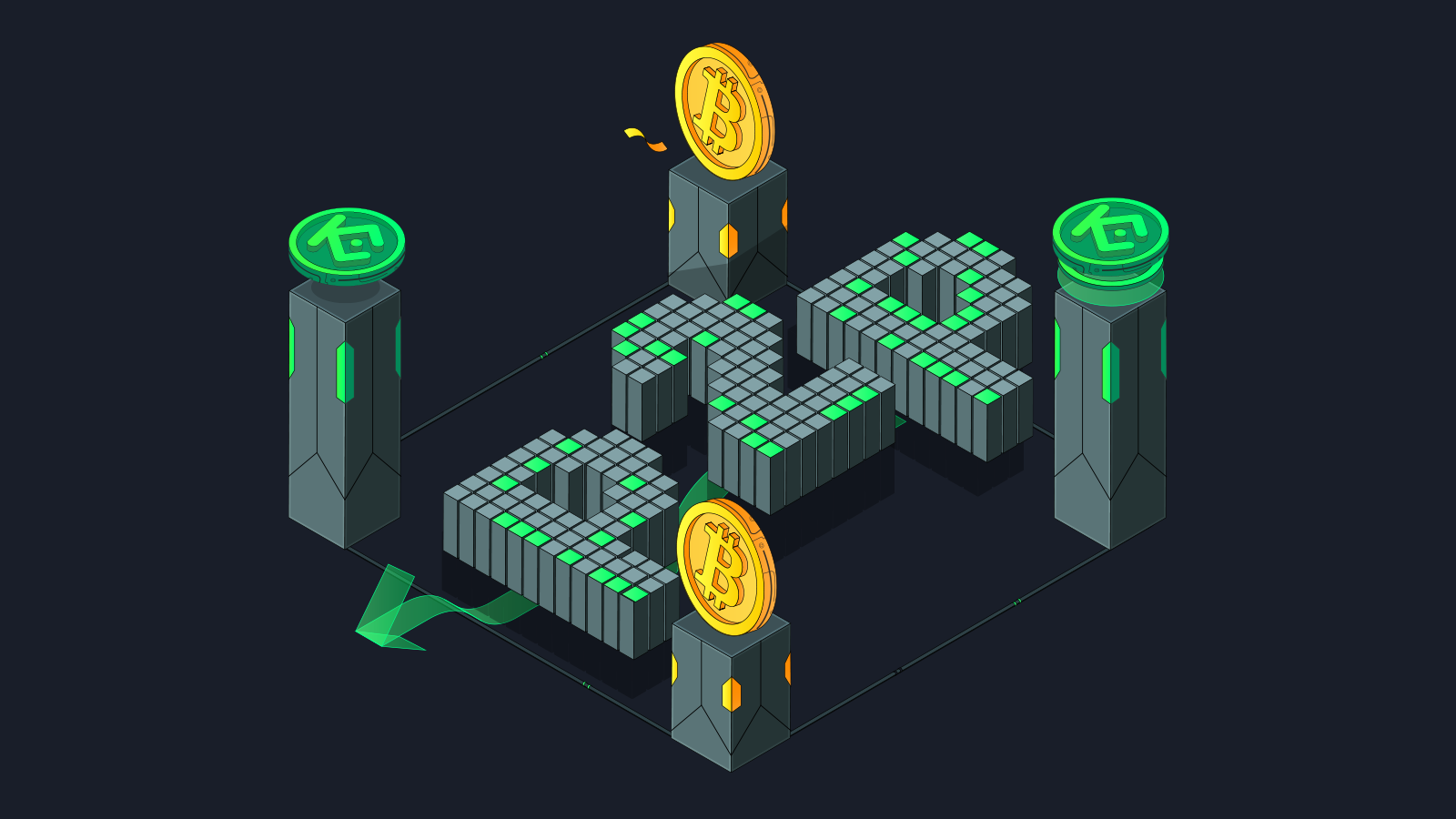
-
Bitcoin ATMs — Physical Gateways to Digital Assets
Bitcoin ATMs are physical machines that allow users to buy or sell Bitcoin using cash or other methods. They serve as a bridge between the traditional fiat world and the crypto world. Some Bitcoin ATMs may not require full KYC, especially for smaller transaction amounts within certain limits.
-
How it works:
-
Select Operation: The user chooses "Buy Bitcoin" on the ATM screen.
-
Enter Amount/Scan Wallet: The user inserts cash or selects the purchase amount, then scans their Bitcoin wallet QR code.
-
Verification (Optional): For small transactions, the ATM might only require phone number verification; for larger amounts, it might necessitate ID scanning or fingerprint verification.
-
Confirm Transaction: The ATM sends Bitcoin to the user's wallet address.
-
-
Pros: Convenient and quick, direct cash transactions, offers some anonymity for small amounts, no online platform account needed.
-
Cons: Very high transaction fees (often 7% to 15% or more), transaction limits, geographically limited availability, and regulatory trends are pushing for more KYC.
-
Note: Regulations for ATM machines are tightening globally, with more operators being required to implement stricter KYC measures, meaning truly "no KYC" ATMs are becoming rarer.
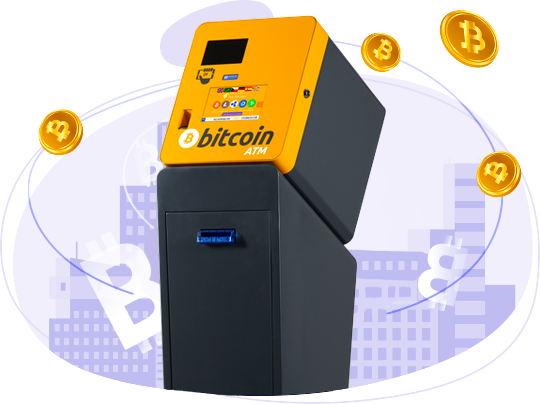
-
Decentralized Exchanges (DEXs) with Wrapped Bitcoin (WBTC) — An Indirect Route in the DeFi Ecosystem
Decentralized Exchanges (DEXs) like Uniswap, PancakeSwap, and Balancer operate directly on the blockchain, allowing users to swap tokens through non-custodial wallets, typically without involving KYC. However, most of these DEXs run on different blockchains (e.g., Ethereum, BNB Chain), while Bitcoin is a native asset on its own independent chain. Therefore, you cannot directly buy native BTC on these DEXs, but you can acquire its "wrapped" version – Wrapped Bitcoin (WBTC).
-
How it works:
-
Acquire Base Token: You first need to acquire another cryptocurrency (e.g., ETH, USDT, USDC) on a platform that might not require KYC (e.g., certain P2P platforms).
-
Connect Wallet: Connect your non-custodial wallet (e.g., MetaMask, Trust Wallet) to the DEX.
-
Execute Swap: Swap your held token for WBTC on the DEX.
-
WBTC Characteristics: WBTC is an ERC-20 token pegged 1:1 to native Bitcoin, with its minting and burning overseen by trusted custodians (e.g., BitGo).
-
-
Pros: The swap process itself is highly private, allows you to gain exposure to Bitcoin's value within the DeFi ecosystem without KYC, and enables participation in DeFi lending, farming, and other activities.
-
Cons: You acquire a "wrapped" version, not native BTC. Converting WBTC back to native BTC typically requires going through a centralized custodian, which often involves KYC. Cross-chain bridging solutions (converting native BTC to WBTC) can be complex and carry smart contract risks.
-
Direct/Offline Trades (Cash in Person) — The Most Primitive and Riskiest Method
This method typically involves arranging a trade with another individual directly, often through personal networks or online forums (e.g., certain subreddits).
-
How it works: Both parties agree to meet in person, and cash is exchanged for Bitcoin (transferred directly to your wallet via a mobile app).
-
Pros: Maximum privacy, completely bypasses any centralized platform.
-
Cons: Extremely high risk! Significant risk of fraud, theft, or physical danger. Untraceable, with virtually no legal or technical recourse if problems arise. Not recommended unless dealing with highly trusted, long-known individuals.
Significant Risks & Crucial Considerations for Buying BTC No KYC — A Stern Warning
While buying BTC no KYC offers privacy, it is absolutely vital to fully comprehend the heightened risks involved, which far exceed those of traditional KYC-compliant exchanges:
-
Elevated Scam Risk: Unregulated environments are breeding grounds for fraudsters. Common scams include: sellers not releasing Bitcoin after receiving payment; buyers sending fake payment confirmations; trading parties using stolen funds; and phishing attempts through deceptive websites. Without identity verification, tracing or holding scammers accountable is nearly impossible once funds are lost.
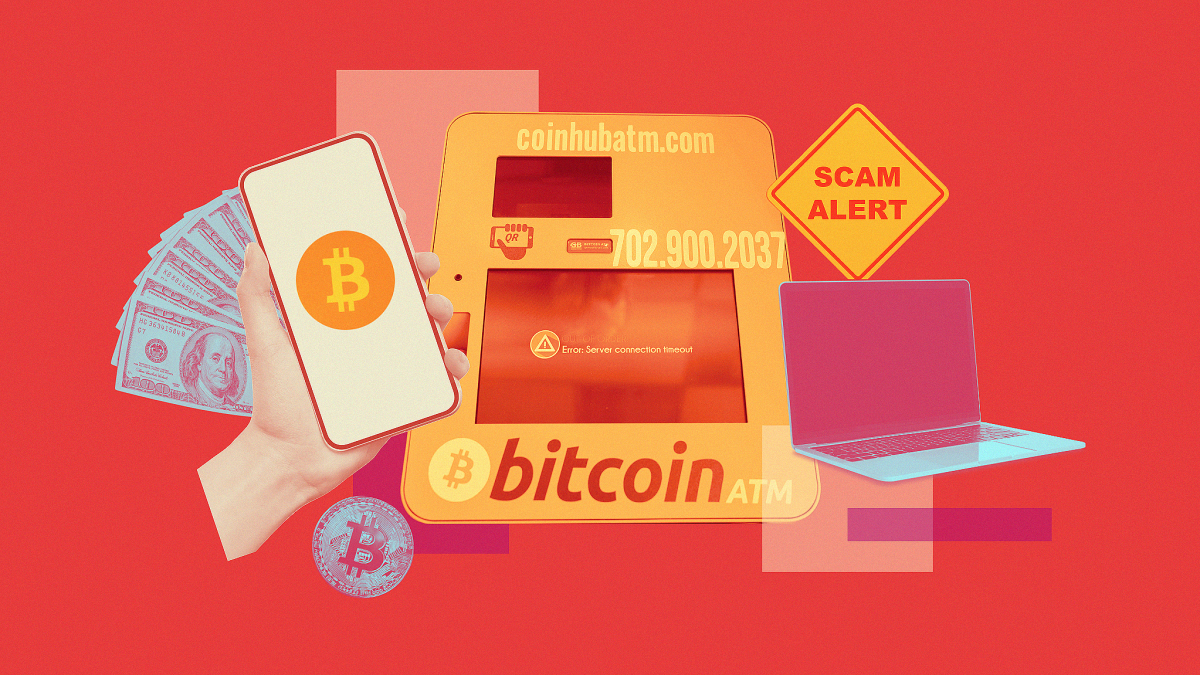
-
Lack of Consumer Protection & Legal Safeguards: Unlike regulated exchanges, no-KYC platforms or direct trades typically offer no legal recourse or consumer protection mechanisms. This means that in the event of disputes, lost funds, platform shutdowns, or hacks, you will bear all losses yourself.
-
Legal & Regulatory Ambiguity: Cryptocurrency regulations are continuously evolving globally. Engaging in no-KYC transactions, especially for larger amounts, could potentially put you in a legal grey area or even violate local Anti-Money Laundering (AML) laws, leading to significant fines or even criminal charges. Furthermore, if the funds you use to buy BTC no KYC are derived from illicit activities, this constitutes a far more serious crime. Always understand the tax implications of buying Bitcoin in your jurisdiction; even small, no-KYC transactions may be subject to tax reporting.
-
Lower Liquidity & Higher Transaction Fees: Many no-KYC methods (especially P2P platforms and ATMs) may have significantly lower trading volumes than mainstream centralized exchanges, leading to insufficient liquidity. This could mean you might not be able to buy or sell at your desired price, experiencing greater slippage. Additionally, they often charge substantially higher transaction fees and spreads, eroding your investment.
-
Security Vulnerabilities & Technical Challenges: Some smaller or less reputable no-KYC platforms might lack the top-tier security infrastructure, multi-layer encryption, and cold storage solutions found in major exchanges. This makes them more vulnerable to hacks, insider theft, or technical glitches that could jeopardize user funds. For P2P or DEX transactions, users face greater technical challenges in managing wallets and securing private keys themselves.
-
Limited Features & Ecosystem Isolation: Buying BTC no KYC typically means you won't have access to convenient additional services offered by mainstream exchanges, such as advanced trading tools, staking, lending, futures trading, or fiat withdrawals. You may also be restricted from participating in certain DeFi or NFT projects that require KYC.
-
Platform Shutdowns or Service Disruptions: Non-compliant no-KYC exchanges or service providers may face regulatory crackdowns and forced shutdowns, leading to user funds being frozen or lost, with no clear mechanism for fund recovery.
Essential Security Tips & Best Practices for Buying BTC No KYC — Your Action Guide
If, after fully understanding and accepting all associated risks, you still choose to buy BTC no KYC, then implementing extreme precautions is absolutely essential and paramount:
-
Start Small & Test Iteratively: Never commit large sums of money initially. Begin with very small amounts to test the functionality, transaction process, and claimed reliability of your chosen platform. Even if losses occur, consider them a learning cost.
-
Thorough Research & Due Diligence:
-
Platform Research: Carefully read independent reviews, consult user forums (e.g., Reddit, Bitcointalk), and review historical news and security audit reports. Be wary of any platforms promising excessively high returns or claiming "zero risk."
-
Counterparty Research: On P2P platforms, prioritize trading with counterparties who have high trading volumes, excellent reputation scores, and a long online history.
-
-
Beware of Phishing and Scams:
-
Verify URLs: Always meticulously verify website URLs, ensuring you are accessing the official and correct address. Be extremely cautious of suspicious links sent via email, social media, or chat applications.
-
Decline Unsolicited Offers: Maintain a high level of skepticism towards any offers of "free crypto," "high-yield investments," or "exclusive airdrops."
-
Private Chat Caution: On P2P platforms, try to communicate primarily within the platform's internal chat system to avoid being lured to private messaging apps where scams are more prevalent.
-
-
Robust Wallet Security Management — Your Digital Fortress:
-
Withdraw Immediately: After buying BTC no KYC, always transfer your Bitcoin immediately from the trading platform or ATM to your own controlled personal wallet. Do not leave funds held by any third-party platform for longer than absolutely necessary.
-
Prioritize Cold Storage: For any Bitcoin amount exceeding your casual spending money, strongly consider using a hardware wallet (cold storage). These devices store your private keys offline, maximally protecting against online attacks.
-
Backup Seed Phrase/Private Keys: Securely and offline back up your wallet's seed phrase or private keys, and store them in multiple secure locations. Loss of these means permanent loss of your assets.
-
Multi-Signature Wallets: For larger sums, consider using a multi-signature wallet, which adds an extra layer of security.
-
-
Implement Strong Passwords and Two-Factor Authentication (2FA): For any platform or wallet service you use, you must employ unique, complex, and randomly generated passwords. Enable all available two-factor authentication methods (e.g., Google Authenticator, hardware keys) where possible, preferring them over SMS-based 2FA.
-
Understand Transaction Fees and Slippage: Before executing any trade, be sure to clearly understand all associated fees (including network miner fees, platform transaction fees, payment method fees, etc.). On low-liquidity platforms, price slippage can mean you receive less Bitcoin than anticipated.
-
Extreme Caution for In-Person Cash Trades: If absolutely necessary to conduct an in-person cash trade, always choose a public, well-lit, and monitored location. It's advisable to bring a friend along. Before handing over cash, ensure the Bitcoin transaction has been sent and is starting to confirm on the blockchain. This remains the highest-risk option and is generally not recommended.
-
Record All Transactions: Even for no-KYC transactions, meticulously record the date, time, amount, addresses, counterparty information (if possible), and payment method for all trades. This is crucial for future auditing, dispute resolution, or tax reporting (even small transactions may involve taxes).
Conclusion
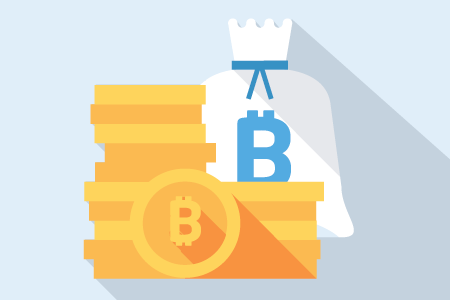
Pathways to buy BTC no KYC undeniably exist, offering possibilities for users who prioritize privacy and asset acquisition under specific constraints. However, this freedom does not come without a price. Users must clearly recognize that by removing the KYC verification and regulatory safeguards of centralized entities, they expose themselves to significantly increased risks of fraud, legal non-compliance, and the inherent vulnerability of their assets.
For the vast majority of regular users, especially newcomers to cryptocurrency, we strongly and repeatedly recommend using well-regulated, highly secure, and KYC-compliant exchanges for Bitcoin purchases. While requiring personal information, this trade-off provides superior security, legal protection, and reliability, substantially mitigating the risks you might encounter in the cryptocurrency market.
If you ultimately decide to pursue a no-KYC path, you must treat it as a high-risk endeavor. Your vigilance, ability to identify potential threats, and strict adherence to the security measures outlined above will be your sole and most important line of defense in the less regulated and often challenging corners of the crypto market. Always remember the crypto mantra: "Not your keys, not your coins."












